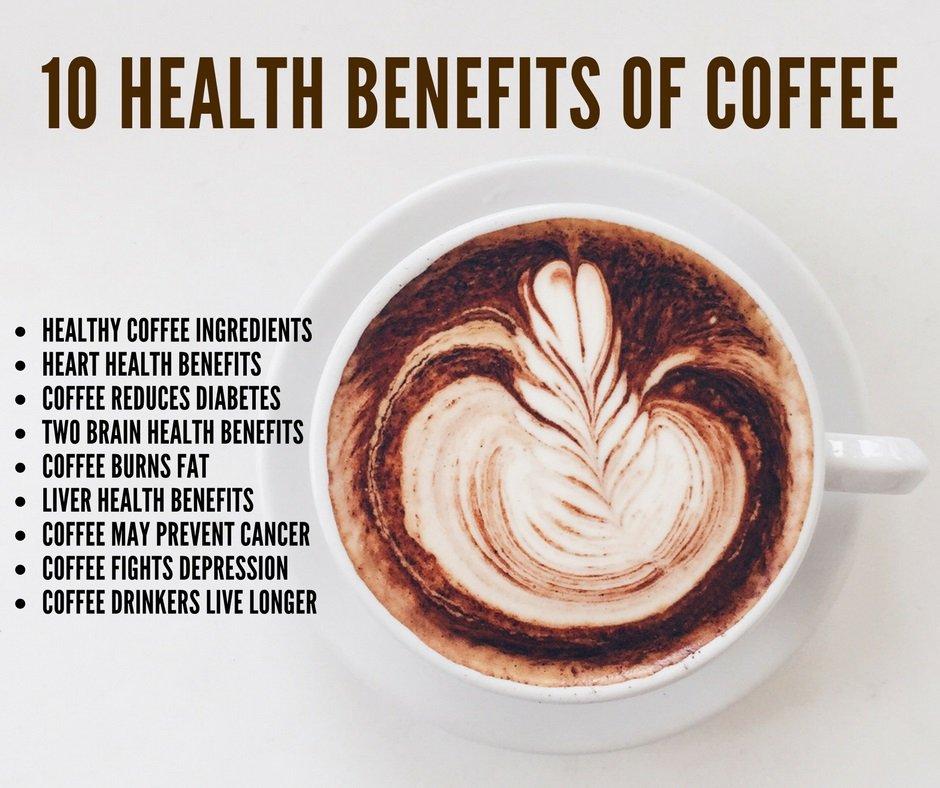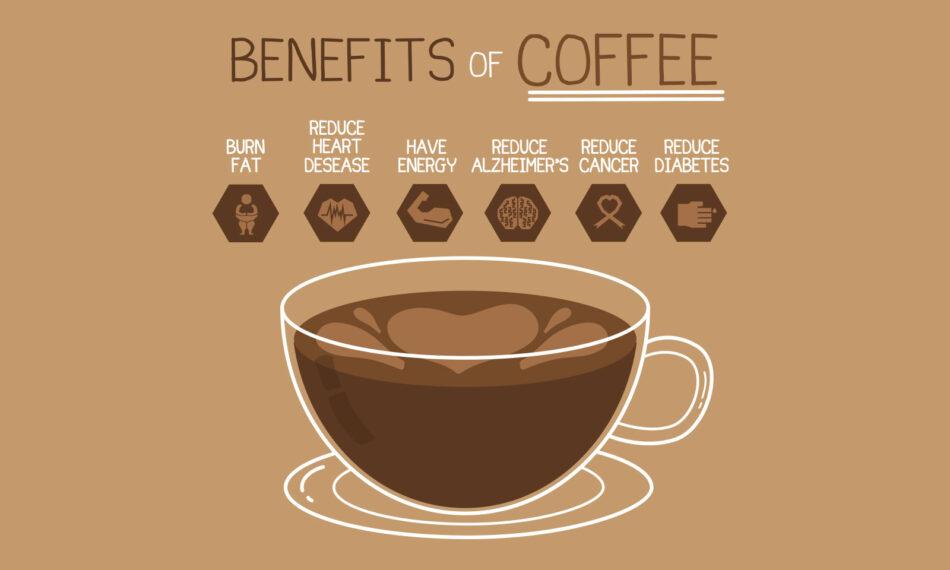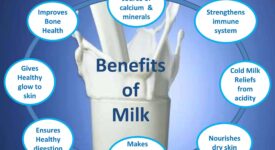Coffee is not only an excellent way to start the day, but it’s also beneficial for your health. It contains antioxidants which aid in glucose absorption and may reduce the risk of developing diabetes.
However, it also contains caffeine which may lead to various side effects. Thus, it’s essential to monitor how much caffeine you consume.
1. Boosts Memory
Caffeine and other compounds found in coffee, such as chlorogenic and caffeic acids, have been scientifically proven to aid memory storage in the brain. Furthermore, caffeine improves alertness and cognitive functioning – potentially aiding in the prevention of conditions like Alzheimer’s disease or dementia.

A recent study has demonstrated that drinking caffeine immediately after studying a series of pictures can help people remember the finer details, an effect known as pattern separation. This is essential for learning and avoiding memory loss.
2. Reduces Risk of Stroke
People who drink coffee regularly are less likely to suffer a stroke than those who don’t, possibly due to its caffeine effects which can lower blood pressure levels.
However, it’s essential to remember that coffee alone won’t cure heart disease; other factors like diet and exercise are far more significant for overall wellness.
3. Boosts Mood
Coffee has been proven to invigorate and alert you, while improving your mood and increasing focus.
However, it’s essential to know that caffeine can cause anxiety and agitation if not metabolized quickly enough. This is because some individuals have a variant of the CYPA1A2 gene which slows caffeine breakdown and keeps it in your bloodstream longer, potentially leading to unwanted side effects.

4. Lowers Risk of Cancer
Coffee has antioxidants which may help prevent or delay cancer development. Studies have also demonstrated its beneficial effects on heart health, such as lowering the risk of stroke and cardiovascular disease (CVD).
However, many studies have not discovered any conclusive proof that drinking coffee reduces your risk of cancer. These have mostly been observational studies which don’t prove a causal connection between an eating habit and disease development.
5. Reduces Risk of Heart Disease
Coffee drinkers know that caffeine-rich beverages have several health advantages. Not only does it improve alertness, but it may also lower your risk for heart disease and stroke.
According to recent analyses based on UK BioBank data, drinking two to three cups of coffee daily could be beneficial for your heart. Studies suggest that mild to moderate coffee consumption may actually be beneficial for cardiovascular health.
6. Lowers Risk of Diabetes
Coffee has been known to help regulate insulin levels and may even lower the risk of developing diabetes due to its anti-inflammatory effects that reduce inflammation in the body.
Polyphenols in coffee, antioxidant compounds that have been demonstrated to have a beneficial effect on the heart. Unfortunately, drinking too much coffee may increase your risk for diabetes; thus, speaking with your healthcare provider about the best way to consume coffee is important.
7. Lowers Risk of Alzheimer’s Disease
Studies have linked drinking coffee with a reduced risk of Alzheimer’s disease and dementia. This may be because it slows the accumulation of Ab-amyloid, a protein associated with inflammation in the brain.
According to a new study published in Frontiers in Aging Neuroscience, those who drank more coffee had a lower risk of transitioning into mild cognitive impairment or developing Alzheimer’s disease over the course of 10 years. Furthermore, higher coffee intake was linked to slower cognitive decline as well as less Ab-amyloid buildup.
8. Reduces Risk of Cirrhosis of the Liver
Studies have demonstrated that drinking coffee may reduce the risk of liver disease by slowing down fibrosis, or scar tissue formation in your liver.
Cirrhosis, a severe stage of fibrosis that causes the liver to stop working properly, can be prevented with this medication. Furthermore, it lowers the risk for fatty liver disease–another condition which could lead to cirrhosis–by decreasing inflammation in the affected area.
9. Lowers Risk of Depression
Caffeine, the primary component of coffee, has been linked to a lower risk of depression. According to researchers who analyzed surveys of 50,739 women from the Nurses’ Health Study, drinking two to three cups daily was associated with an 11% lower risk for this condition.
According to this research, those who drank four or more cups a day saw their risk for depression reduce by 20%. This suggests that coffee may actually provide some protection against depression, especially among heavy drinkers.








